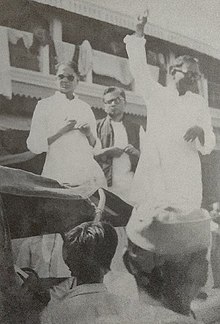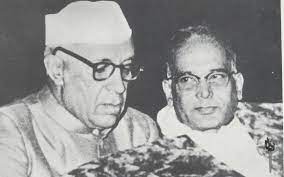Congress Socialist Party (CSP) emerged within Indian National Congress as a vibrant and influential group advocating for socialist principles and economic reforms. This article explores the ideology, key contributions, and legacy of the Congress Socialist Party within the larger framework of the Indian National Congress.

- Founding and Ideology: The Party was founded in 1934 as a distinct group within the Indian National Congress. Influenced by the ideals of socialism, the CSP sought to address economic inequality, poverty, and social injustice. It envisioned a society based on the principles of social ownership, egalitarianism, and collective welfare.
- Economic Reforms: The Party played a crucial role in shaping the economic agenda of the Indian National Congress. They championed policies such as land reforms, nationalization of industries, and the redistribution of wealth. By advocating for a more equitable distribution of resources, they aimed to uplift the marginalized and create a just society.
- Advocacy for Labor Rights: The Congress Socialist Party actively supported the rights of workers and laborers. They fought for fair wages, improved working conditions, and the right to form labor unions. Their efforts helped galvanize the labor movement in India and contributed to the strengthening of workers’ rights.
- Social Justice and Equality: It was at the forefront of the struggle for social justice and equality. They raised their voice against discrimination based on caste, religion, and gender. They emphasized the need for affirmative action and equal opportunities for all sections of society.
- Influence and Legacy: Although the Congress Socialist Party did not achieve mass popularity, its ideas and activism had a lasting impact on the Indian National Congress and the broader political landscape. Many prominent socialist leaders emerged from the CSP, including Jayaprakash Narayan, Ram Manohar Lohia, and Minoo Masani. Their contributions to the fight for social justice, labor rights, and economic reforms continue to resonate in Indian politics.

Lohia
Conclusion: The Congress Socialist Party, as a vanguard of socialism within the Indian National Congress, played a significant role in shaping the discourse on economic justice, labor rights, and social equality in India. Their efforts helped bring issues of poverty, inequality, and exploitation to the forefront of political discussions. While their influence within the Congress fluctuated over time, their legacy lives on through the ideas and contributions of its members. The Congress Socialist Party remains an important chapter in the rich tapestry of India’s political and social history.
Important Links
